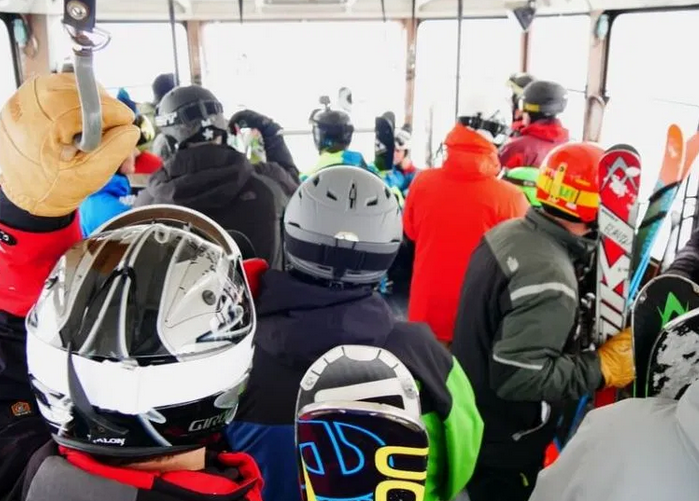
© Kvaka9 | Dreamstime.com
As the events and decisions surrounding the spread of the SARS-CoV-2 virus become clearer, fingers are being pointed. A mass lawsuit targeting events in the Austrian resort of Ischgl is looming, according to Bloomberg. Could similar legal action spread to Swiss resorts?
At the end of last year, the Wuhan Municipal Health Commission issued a public notice confirming 27 cases of a new virus and recommended wearing face masks. Around three weeks later, on 23 January 2020, three days after the Chinese National Health Commission confirmed human-to-human transmission of the virus, China locked down the city of Wuhan and the surrounding region, quarantining 57 million people to contain the virus’s spread.
On 4 March 2020, nearly six weeks after the Chinese lockdown, the Austrian Ministry of Health received a warning from officials in Iceland of 14 SARS-CoV-2 infections originating from Ischgl in February 2020. But the town continued to operate relatively normally.
By 4 March 2020, around 95,000 people across the world were known to be infected by the virus and nearly 3,300 had died. In addition, the longterm health effects of the virus were unknown. Along with China, nations such as South Korea, Taiwan, Hong Kong and Singapore had had rigorous testing, tracing and quarantine processes in place for a number of weeks.
However, Ischgl’s lifts and bars remained open, even after all of the staff in a popular bar were confirmed positive on 9 March 2020, a situation almost unimaginable in much of Asia.
Only on 13 March 2020, nine days after the Icelandic warning, did Ischgl act, closing the resort and requesting potentially infected people return to their home countries.
The email trail, which includes details of the hotels where the infected Icelandic guests stayed in late February 2020, could be used part of a mass lawsuit on behalf of more than 5,000 ski tourists, according to a report by Bloomberg. Prosecutors are looking at whether charges should be laid for criminal negligence in relation to the nine-day delay between receiving the information from Iceland and shutdown.
“Keeping ski resorts open, even though authorities knew or should have known of a threat of mass infection, is certainly a reason to consider claims for damages,” said Peter Kolba, who is spearheading the claim from thousands of skiers from Germany, Scandinavia, Russia and the U.S. Kolba said he’s waiting to see a 1,000-page report police filed to regional prosecutors in Innsbruck before acting further, according to Bloomberg.
Ischgl wasn’t the only ski resort seriously affected by the virus. Les Contamines, in France, and Verbier, in Switzerland, were both hard hit but stayed open until mid-March 2020.
Other resorts and their guests may be waiting to see if legal proceedings in Ischgl might set a precedent for legal actions in those resorts too. If it can be proved that the virus was knowingly left to circulate in the period leading up to shutdown, and too little was done to inform the public of its presence, there may be grounds for claiming negligence.
As the long-term effects of Covid-19, even on those with mild symptoms, continue to emerge, the stakes might rise. Some people with no pre-existing underlying health problems are finding they have symptoms of this new disease months after infection.
Full story here Are you the author? Previous post See more for Next postTags: Coronavirus Switzerland,Covid-19 Switzerland,Editor's Choice,Health,newsletter,SARS-CoV-2 Switzerland































